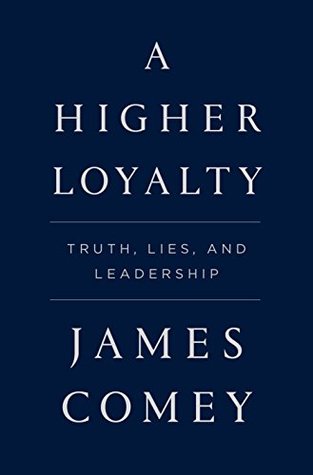More on this book
Community
Kindle Notes & Highlights
Read between
June 1 - August 10, 2018
He who permits himself to tell a lie once, finds it much easier to do it a second and third time, till at length it becomes habitual; he tells lies without attending to it, and truths without the world’s believing him. This falsehood of the tongue leads to that of the heart, and in time depraves all its good dispositions. —THOMAS JEFFERSON
these were the same Republicans who passionately believed that President Bill Clinton’s lies under oath over an affair with an intern simply had to be pursued, because obstruction of justice and perjury strike at the core of our system. Meanwhile, Democrats, who six years earlier attacked the case against Bill Clinton as a silly lie about sex, had discovered in the Libby case that they cared deeply about obstruction of justice crimes—when the obstructers were Republicans.
the hardest ones always seem to need to be made the fastest and on the least information. But those decisions must be made with the recognition that they could be wrong. That humility leaves the leader open to better information until the last possible moment.
We would teach that great leaders are (1) people of integrity and decency; (2) confident enough to be humble; (3) both kind and tough; (4) transparent; and (5) aware that we all seek meaning in work. We would also teach them that (6) what they say is important, but what they do is far more important, because their people are always watching them. In short, we would demand and develop ethical leaders.
The best leaders don’t care much about “benchmarking,” comparing their organization to others. They know theirs is not good enough, and constantly push to get better.
“The ultimate measure of a man is not where he stands in moments of comfort and convenience, but where he stands at times of challenge and controversy”
It is painful to stare openly at ourselves, but it is the only way to change the future.
Like a lot of people, I thought that listening involved sitting silently as someone else talked, and then perceiving what they say. I was wrong. True listening is actually that period of silence and allowing someone’s words to reach your conscious brain, but it also includes something else that’s a little weird: with your posture, your face, and your sounds, you signal to someone, “I want what you have, I need to know what you know, and I want you to keep telling me the things you’re telling me.”
Accidents, sloppiness, and even extreme carelessness with regard to classified information were not things that were prosecuted. Ever. For a current government employee, of course, there would be severe consequences for such carelessness, including the real possibility of losing access to classified information or getting fired, but there would be no criminal prosecution.
As I’d seen from other leaders, being confident enough to be humble—comfortable in your own skin—is at the heart of effective leadership.
To rise above those limitations, good leaders exercise judgment, which is a different thing from intelligence. Intelligence is the ability to solve a problem, to decipher a riddle, to master a set of facts. Judgment is the ability to orbit a problem or a set of facts and see it as it might be seen through other eyes, by observers with different biases, motives, and backgrounds. It is also the ability to take a set of facts and move it in place and time—perhaps to a hearing room or a courtroom, months or years in the future—or to the newsroom of a major publication or the boardroom of a
...more


